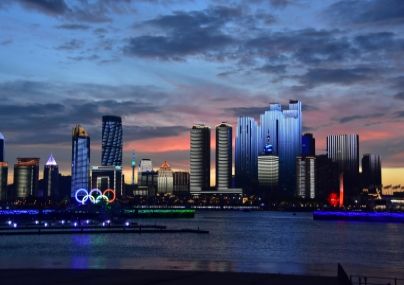Chinese iron ore miners have called for an anti-dumping investigation into imports of the steelmaking raw material from top suppliers Australia and Brazil.
More than 20 Chinese miners in a statement on the Metallurgical Miners' Association of China website said "a huge volume of low-priced imported iron ore has had a severe impact on the domestic mining industry and even posed a big challenge for the security of steel production".
"The capacity of major iron ore miners has continued to grow and requires a massive Chinese market to absorb their great excess," the statement posted on Tuesday said.
Australia's BHP Billiton and Rio Tinto, along with Brazil's Vale, have embarked on massive expansion programmes in recent years to supply the Chinese market.
"Vale, Rio Tinto and BHP Billiton which have dominated global iron ore trade have defied the market and are still expanding despite prices being low since their strategy is to use low-priced dumping to crowd out higher-cost miners," the association said.
Rio Tinto declined to comment, while officials from BHP and Vale could not immediately be reached for comment.
Imports accounted for about 85 percent of China's total iron ore consumption, driving down capacity utilization at domestic iron ore miners and causing losses and shutdowns, the association said.
China is the world's biggest steel producer and iron ore consumer, but growing supplies from Australia and Brazil and the low quality of ore mined locally has increased Beijing's reliance on imports.
And a slide in iron ore prices in the past three years prompted more Chinese steel mills to opt for better quality imported ore and forced many to shut down last year.
A total of 329 Chinese medium and large-sized mines closed last year and another 793 were shut in the first five months of the year with Jan-May output down 2.7 percent from a year ago to 471 million tonnes, the association said.
China has seen a rising mountain of imported iron ore at its ports and imports are forecast to increase by 2.1 percent to 974 million tonnes in 2016 and by 0.7 percent to 981 million tonnes in 2017, according to Australia's Department of Industry and Science.
Carsten Menke, an analyst at Julius Baer, noted that many of China's iron ore mines are vertically integrated into steel mills.
"Hence, this looks like a tit-for-tat response from the steel mills who were feeling international pressure from steel anti-dumping investigations and tariffs," he said.
China has faced its own anti-dumping measures over accusations of flooding markets with cheap steel. Beijing has denied that its prices are artificially subsidised, saying its production cost are much lower than Western countries.
Simon Bennison, chief executive of the Association on Mining and Exploration Companies in Australia, said he found the anti-dumping probe proposal "surprising, given the iron ore price is set on China's Dalian Exchange."
Iron ore prices have tumbled from a record near $200 a tonne in 2011 to $37 last year.


